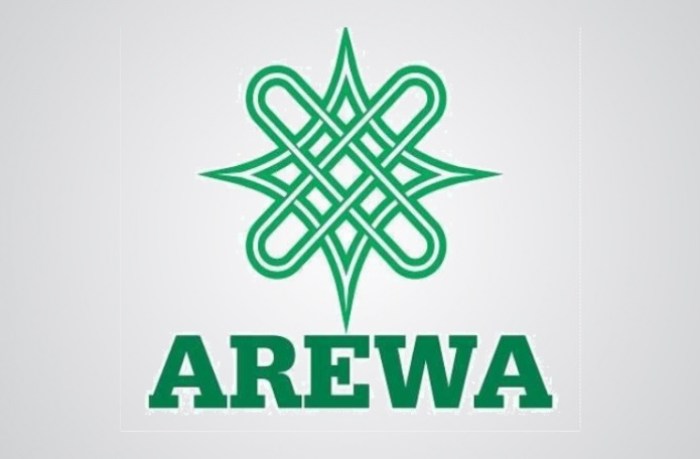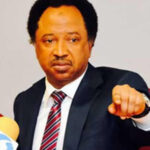Perhaps on top of the challenges the north currently faces in retaining its hold on the power stakes in Nigerian politics has to do with the absence of a rallying political figure for the contest for national leadership in the run up to 2023 and beyond.
At all times in Nigerian politics whether during civilian democratic dispensations or military governments, the north has never lacked a leader or crop of leaders to project its interests in national politics. From Ahmadu Bello/Tafawa Balewa down to Muhammadu Buhari, the north has always prided itself in being able to produce leaders that will carry the flag of northern dominance of Nigerian politics on demand even when this control comes under serious challenge or threat.
- ‘We’re yet to come to terms with the demise of our sons’
- Sean Morrison heads winner as Cardiff City seal comeback win against Stoke City
In 1966 when the crop of northern political leaders were killed in the January 15 coup, the rump of northern political and military leaders rallied round and thrust then Colonel Yakubu Gowon to lead Nigeria. Similarly in 2015 when a southerner Vice President Goodluck Jonathan under fortuitous circumstances following the passing on of his principal, President Umaru Musa Yaradua became president, the north rallied round northern opposition figure Muhammadu Buhari to defeat the incumbent.
In the run up to the 2023 elections it is becoming increasingly clear that due to the aforementioned factors the north can neither put up a rallying political figure, nor can the famed northern monolithic bloc votes avail the region any political advantage in the coming contest for national leadership.
Having put all its political eggs in the Buhari basket and riven with deep political and social fault lines, the north knows that it is not in a position to once again spring another political checkmate on the country.
Under these conditions in the run up to 2023 it will amount to an exercise in futility for the north to put up a candidate for national leadership under any political party.
Perhaps discerning the prevailing political mood in the country, the north is currently working towards the realistic option of angling for the Vice presidency. In pursuit of this the northern political machine is pushing to make deals along two planks; to do an Obasanjo deal as in 1999 when a distraught and disoriented Obasanjo sprung from jail was given conditions under which he was to operate as president. This is what probably informs the manoeuvring to draft in former President Goodluck Jonathan into the 2023 presidential race.
The thinking behind this is that the former president now being gradually rehabilitated in the minds of northerners will be desperate enough to want to fall for the tempting offer a presidential cherry. The fact that he is status barred by the constitution to serve only a term if gets elected adds to the attraction of this deal to northern political calculations. If former president Jonathan agrees to this deal the north will turn its formidable political machine and his presidency will be owned by them. And to reinforce the deal he will be compelled to have a powerful northern vice president who will be in pole position to take over in 2027 after Jonathan as president must have served out his constitutionally allowed one term. That way power will be guaranteed to return to the north after a brief interval of four years.
The second plank will be to identify a southern candidate who will be asked to accept a northern nominee as running mate in return for northern political support. The thinking behind this is to prevent such a candidate from choosing his own running mate which may turn out not to the liking of the northern political elite who will find themselves out of the power loop in the event of such development.
Behind these manoeuvres is the realisation that a southern president in 2023 which is probably the only political antidote to stave off a massive political crisis in Nigeria, will more than likely whittle down and eventually decapitate northern political influence and control of Nigerian politics.
Northern political elite perceive this as a distinct possibility in the likely event of power shift to the south. A southern president on coming to power will not feel obliged to stick to any prior political agreements once he is safely installed in power. He will want as a first step to appoint his cronies into choice and strategic positions to consolidate his hold on power. He will also look to side line the northern vice president and ensure his limited powers are further limited.
Going forward, even if whichever southerner emerges president is not inclined to it, the pressure to implement a restructuring of the country will be too strong to ignore. Indeed to such a southerner, restructuring will be the perfect tool to finally nail down the coffin of northern political control in the country. He will use it to implement a political version of the Orkar coup of April 22, 1990 this time through deft legitimate democratic means.
Northerners would be hard put to complain against any such political manoeuvres by a southern president because they will be reminded of what happened under president Buhari. When the current insecurity issues in the north continues the southern president will justifiably say it is a northern problem which did not start under his tenure and which should be solved by northerners.
Northern political numbers in the National Assembly, in popular votes or in number of states and governors will count for very little because a north weakened politically by deep religious and ethnic fault lines, ravaged by insecurity and divided along class lines cannot muster enough political heft to even resist not to talk of mounting political counter measures as it has always done to recapture the centre of national politics.
For all practical purposes the north is staring at a barrel, out of odds, out of wits and in this desperate state, the sick man of Nigeria. The north should blame itself in the likely event of all of this happening to it between now and 2023 and beyond.
Sheikh Usman Dan Fodio who first laid the foundation of northern political control of northern Nigeria way back in 1804 did admonish his disciples and heirs on the need to uphold Justice as the most important element in any society. He said this knowing fully well that the pre-Jihad rulers of northern Nigeria had forsaken this essential factor of rulership which made them vulnerable and open his motley group to defeat and supplant them.
The situation in today’s northern Nigeria very much reflects the pre-Jihad days that Sheikh Usman Dan Fodio talked about over two centuries ago.

 Join Daily Trust WhatsApp Community For Quick Access To News and Happenings Around You.
Join Daily Trust WhatsApp Community For Quick Access To News and Happenings Around You.

